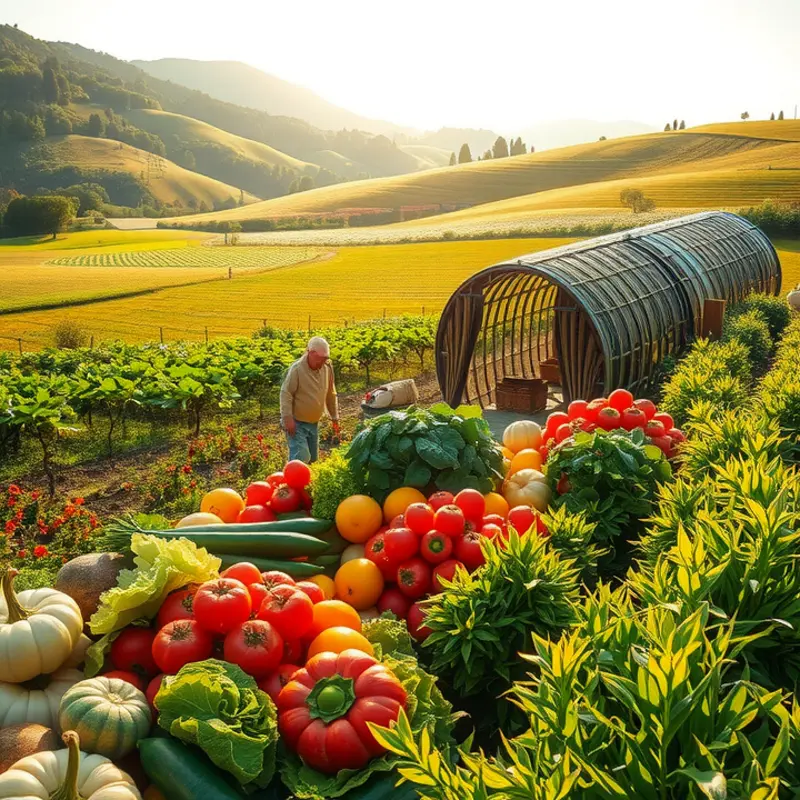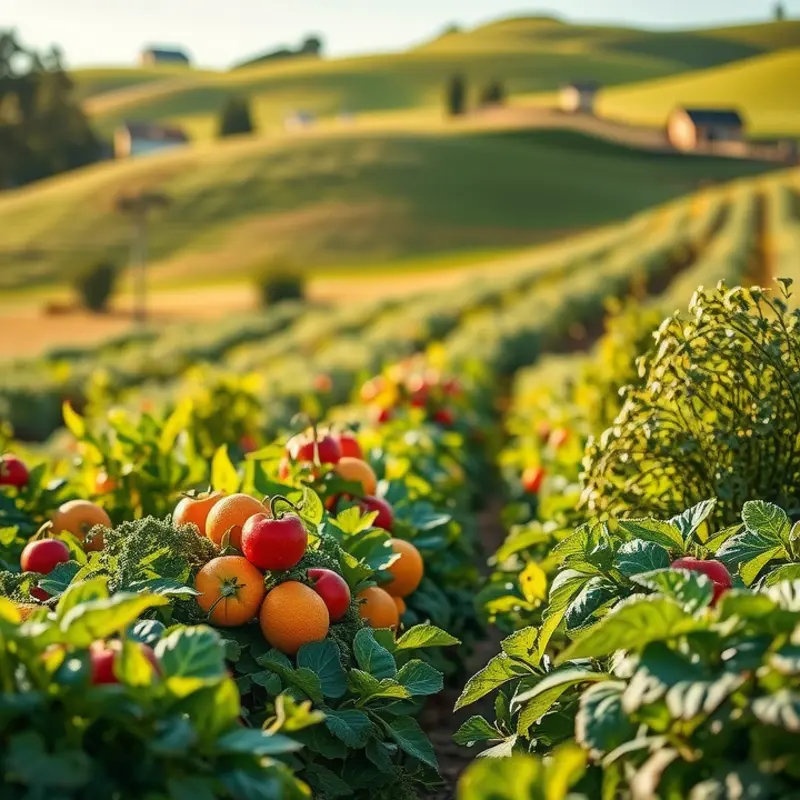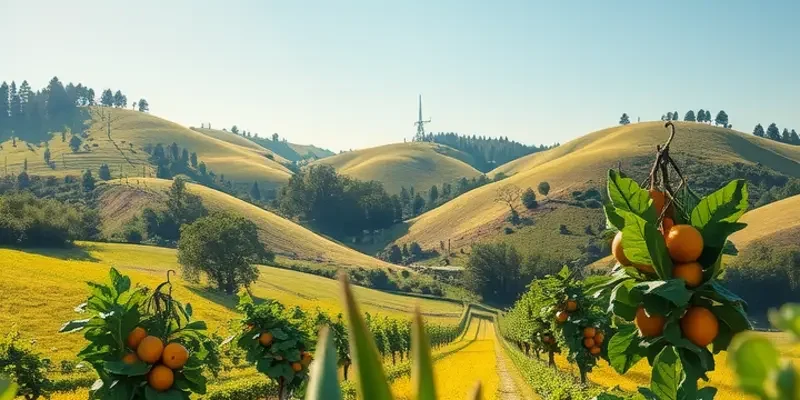The modern food landscape is evolving, as environmentally-conscious individuals discover the importance of sustainable farming. This method not only nurtures the environment but also supports healthier lifestyles. Making eco-friendly food choices is crucial for those looking to reduce their carbon footprint and promote biodiversity. Let’s explore how you can actively support sustainable farming and its essential role in safeguarding our planet.
Understanding Sustainable Farming

Sustainable farming is a holistic approach that aims to produce food while ensuring long-term ecological balance. At its core, it involves practices that are environmentally sound, economically viable, and socially responsible. By adhering to principles such as maintaining soil health, reducing synthetic inputs, and promoting biodiversity, sustainable farming minimizes its ecological footprint.
One of the primary methods of sustainable farming is organic farming. This method excludes synthetic fertilizers and pesticides and instead relies on natural fertilizers and biological pest control. Organic farming promotes healthier soil, which can capture and store more carbon, significantly reducing greenhouse gas emissions.
Permaculture, another sustainable approach, focuses on designing agricultural landscapes that work with natural ecosystems rather than against them. By mimicking natural processes, permaculture systems are inherently diverse, providing habitats for various species and enhancing biodiversity. This diversity can lead to more resilient ecosystems that can better withstand climate change.
Agroecology combines agricultural and ecological knowledge to optimize interactions between plants, animals, humans, and the environment. It integrates crops and livestock in a way that enhances rather than depletes resources. For instance, utilizing crop rotation and intercropping not only enriches soil nutrients but also disrupts pest cycles, reducing the need for chemical interventions.
Sustainable farming contributes significantly to preserving biodiversity by maintaining habitats for wildlife and supporting diverse plant species. Biodiversity is crucial for resilience against pests and diseases, ensuring ecosystem stability.
Moreover, these practices significantly lower carbon footprints. By reducing reliance on fossil fuel-based inputs, sustainable farming emits fewer greenhouse gases. Practices like cover cropping and reduced tillage play a key role in carbon sequestration, drawing more carbon dioxide from the atmosphere into the soil.
Soil health is another vital benefit provided by sustainable farming. Healthy soils are teeming with microorganisms that help plants access nutrients, leading to more nutritious food. These practices prevent soil erosion, maintain soil structure, and enhance water retention, ensuring long-term agricultural productivity.
To support sustainable farming, consumers can make informed choices about the products they purchase. One actionable step is to look for certifications and labels indicating sustainable practices. Labels such as organic and fair trade can guide consumers toward environmentally-friendly products.
To learn more about integrating sustainable practices into your kitchen routine, explore ways to reduce food waste and practice eco-smart storage techniques by visiting Eco-Smart Kitchen Storage. This proactive approach not only supports sustainable farming but also promotes an eco-friendly lifestyle.
How to Support Sustainable Farming Efforts

Embracing sustainable farming begins with our daily food choices. By supporting farmers dedicated to eco-friendly practices, we contribute to a more resilient food system. Here are several ways to champion these efforts.
Start by buying from local farmers’ markets. They are perfect venues to find fresh, seasonal produce grown using sustainable methods. Direct interaction allows you to ask farmers about their agricultural practices. Consider posing questions like:
- What kind of pest management strategies do you use?
- Do you incorporate crop rotation?
- How do you maintain soil health?
These questions not only inform your choices but also encourage dialogue about sustainable farming. Opting for organic or regenerative products supports farmers who prioritize ecological balance and soil conservation.
Joining a Community Supported Agriculture (CSA) program is another impactful way to support sustainable agriculture. CSAs provide you with regular shares of fresh produce, often sourced from farms committed to environmentally cautious practices. By participating, you lend financial support to farmers upfront, helping them plan their growing seasons and reduce food waste.
When shopping for groceries, choose brands committed to sustainable practices. Many companies now emphasize their dedication to eco-friendly production, including reduction in chemical inputs and better water management. Check labels for certifications that indicate sustainable credentials, such as organic certification marks or indicators of fair trade.
Educating yourself about food sourcing is essential. Understand the journey your food takes from farm to table. Advocate for policies that promote sustainable farming by participating in community meetings or supporting organizations pushing for agricultural reform.
Finally, learn more on how to reduce waste while supporting these sustainable efforts. For practical tips, explore resources like the Eco Smart Kitchen Storage guide to optimize your food storage practices and minimize environmental impact.
Supporting sustainable farming is a joint effort of conscious consumerism and active advocacy. By making informed choices and participating in community efforts, we can significantly influence the shift toward sustainable food systems.
Final words
Supporting sustainable farming is a powerful way to make a positive impact on both your health and the environment. By understanding the methods behind sustainable agriculture and actively choosing to support these practices, you contribute to a cleaner, greener planet. With every eco-friendly decision you make, whether through shopping habits or advocacy, you foster a healthier community that values nature and its resources. Remember, the journey toward sustainability starts with informed choices and a commitment to nurturing the earth we all share.








